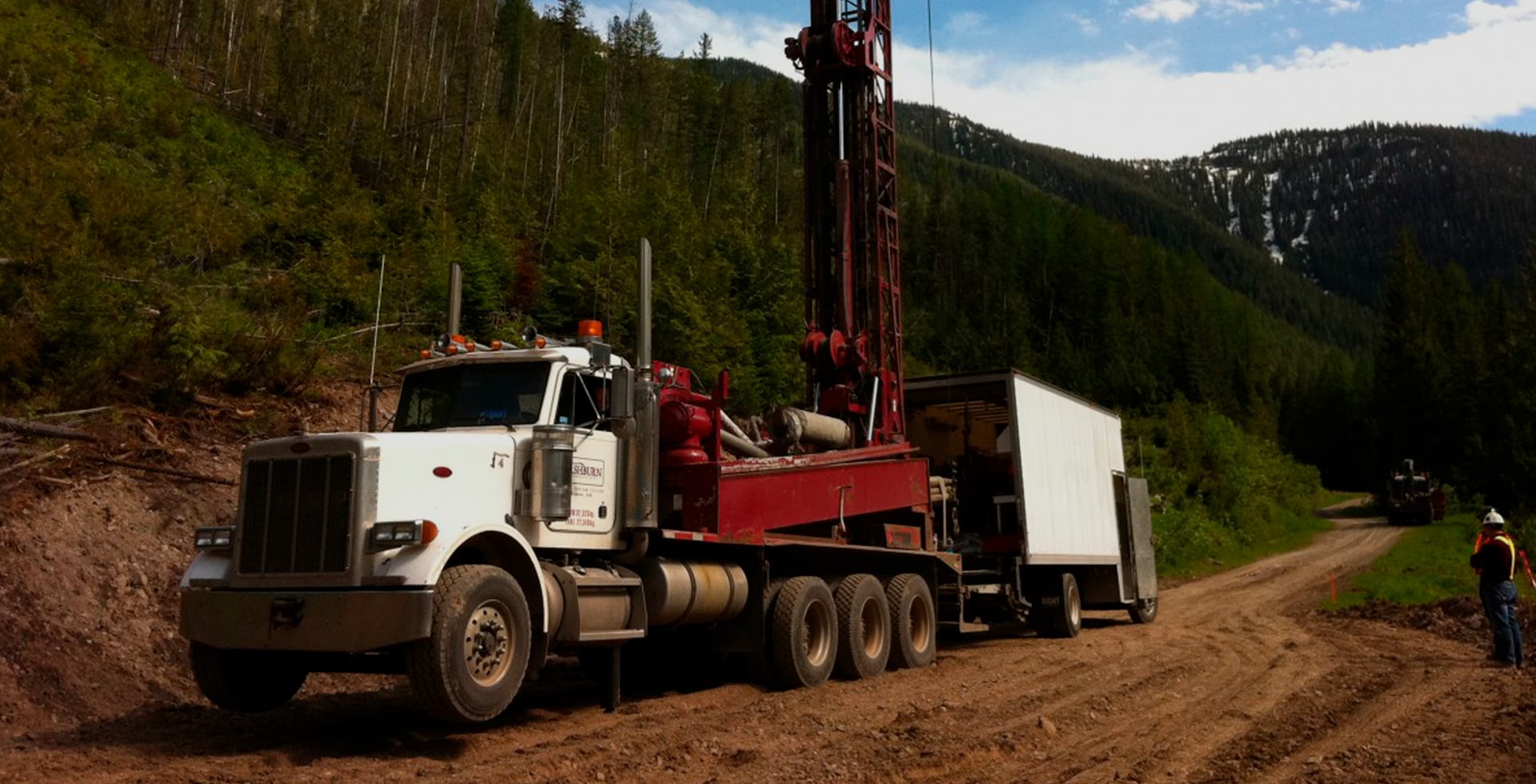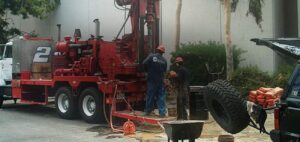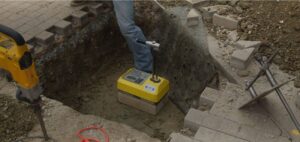
Imagine stepping onto a construction site where the air vibrates with the energy of machinery and the purposeful strides of workers. Amidst this vibrant scene of construction, there lies an often-overlooked yet critical component that underpins the success of the entire project: soil compaction. Ensuring proper soil compaction is not just a task; it’s a pivotal factor that determines the structural integrity and longevity of the construction effort. The common belief holds soil compaction testing to be a daunting, time-consuming process, perceived as inaccessible for the average construction worker. However, G3SoilWorks is setting a new standard by introducing a revolutionary method that simplifies soil compaction test methods, making them intuitive, efficient, and within reach for every construction professional on the ground.
At the foundation of every construction project lies the critical process of soil compaction. It’s what ensures the stability of foundations, preventing uneven settlement that can lead to significant structural issues. The role of soil compaction extends beyond just stability; it’s essential for achieving the optimal load-bearing capacity required for roads, structures, and pavements. Furthermore, effective compaction reduces soil erosion and enhances drainage efficiency, safeguarding the infrastructure from water-related damages.
Incorrect compaction is a harbinger of potential disaster, leading to structural failures, cracks, leaks, and extensive damage to the infrastructure. The repercussions of overlooking this crucial step can not only result in financial losses but also pose safety risks. Hence, employing reliable methods for testing compacted soil is indispensable, ensuring regular monitoring and adherence to standards throughout the construction stages.
With the challenges of traditional soil compaction testing in mind, the new, innovative approach introduced simplifies the entire process. This method revolutionizes the conventional practices by providing:
When juxtaposed with conventional practices, the benefits of this novel approach become glaringly apparent. The innovative method not only saves time and reduces the requirement for specialized equipment but also simplifies data analysis, streamlining the testing process. By transforming the approach to soil compaction tests, this method offers a beacon of efficiency for the construction industry.

The easy soil compaction testing method stands out for its adaptability, making it indispensable across a range of construction scenarios, thereby elevating project outcomes and operational efficiency.
The integrity of any structure begins with its foundation. Before the concrete is poured, verifying the soil’s compaction is critical. This step ensures the future stability and durability of the structure, serving as a preventive measure against potential foundation-related issues that could compromise safety and longevity.
The longevity of roads and pavements is directly linked to the quality of soil compaction during construction and maintenance phases. Continuous monitoring of soil compaction is essential to prevent premature wear and tear, thereby safeguarding against future liabilities and ensuring the infrastructure can withstand the demands of heavy traffic and environmental conditions.
In the realm of landscaping and earthworks, proper soil preparation is paramount. Accurate compaction testing is essential for effective drainage and robust vegetation growth, enhancing both the aesthetic and functional quality of the site. This step ensures that landscaping efforts are built on a solid foundation, capable of supporting sustainable growth and preventing water-related issues.
Before breaking ground on a new project, identifying areas that require attention in terms of soil compaction can save significant time and resources. This proactive approach mitigates potential issues before they arise, streamlining the construction process and ensuring that efforts are focused where they are most needed.
Documenting soil compaction test results is streamlined with this method, simplifying quality control and ensuring compliance with regulatory standards. This aspect is crucial for maintaining project records, facilitating audits, and ensuring that construction practices meet industry standards and safety regulations.
By integrating soil compaction test methods into every stage of a construction project, professionals can significantly enhance the quality and efficiency of their work. This comprehensive approach ensures a solid foundation for construction endeavors, promoting structural integrity, safety, and project success. It underscores the commitment to excellence and due diligence, reflecting a deep understanding of the critical role soil compaction plays in the overall durability and success of construction projects.
A step-by-step guide on utilizing the easy soil compaction testing method brings to light the user-friendly nature of the technology. With clear visuals and examples, the guide illustrates the simplicity of the interface and the straightforwardness of data output, demystifying the testing process. Testimonials from seasoned construction professionals who have adopted this method highlight its transformative impact, underscoring its ease of use and the efficiency it brings to construction projects. These endorsements serve as a testament to the method’s capacity to simplify complex processes, making methods for testing compacted soil accessible and manageable.
The availability of immediate, accurate soil compaction data marks a significant advancement in construction management. It enables proactive decision-making and on-the-spot adjustments, fostering a dynamic and responsive construction environment. This level of immediacy enhances communication and collaboration among teams, fostering a unified approach to tackling construction challenges. With increased confidence in the quality of work and a reduced risk of costly rework, construction professionals can focus on optimizing workflows and project timelines. The impact of streamlined soil compaction tests extends beyond mere technical improvements; it cultivates a culture of efficiency, reliability, and shared responsibility on the construction site.

The innovative approach to soil compaction testing introduced by G3SoilWorks signifies a paradigm shift in construction project management. By simplifying the soil compaction test methods, this method not only makes the process more accessible but also significantly improves the quality and efficiency of construction projects. It’s a call to action for construction professionals to embrace this simplified solution, ensuring their projects are not just built on solid ground but are also emblematic of innovation, quality, and efficiency. In the grand scheme of construction, the easy soil compaction testing method is more than a tool; it’s a stepping stone towards building a future where every project is rooted in excellence and durability. G3SoilWorks stands at the forefront of this change, empowering construction professionals with the knowledge, tools, and confidence needed to tackle the challenges of modern construction, ensuring peace of mind and success in their projects. Call us at +1 714-668-5600 for more information.
FAQ 1: What is the Easy Soil Compaction Testing Method?
A: The Easy Soil Compaction Testing Method is a groundbreaking approach designed to simplify the soil compaction process in construction. Unlike traditional methods, it offers an intuitive, user-friendly, and time-efficient way of testing soil compaction. This method is portable, provides quick and accurate results, and requires minimal training, making it accessible for all construction professionals. It’s particularly beneficial for ensuring foundation stability, road durability, effective landscaping, and overall construction quality.
FAQ 2: What are the main benefits of using the Easy Soil Compaction Testing Method in construction projects?
A: The main benefits of using this method include enhanced safety and structural integrity of construction projects, time and resource efficiency, ease of documenting test results for quality control and compliance, and overall improvement in project success rates. It’s an excellent tool for ensuring that the soil compaction aspect of construction meets the highest standards, thereby reducing risks of structural issues in the future.
FAQ 3: Can the Easy Soil Compaction Testing Method be used in all types of construction projects?
A: Yes, the Easy Soil Compaction Testing Method is versatile and can be applied across various construction scenarios. It’s ideal for foundational work, road and pavement construction, landscaping and earthworks, and pre-construction assessments. This method is designed to suit a wide range of construction needs, ensuring that soil compaction is done effectively and efficiently, regardless of the project’s scale or type.
Follow, engage, learn. Stop by our blog to see what’s happening at G3SoilWorks.
G3Soilworks – a full service geotechnical/ engineering geologic consulting firm serving clients since 2009 and delivering expert solutions with our highly experienced team and specialized consultants.
G3SoilWorks
350 Fischer Avenue Costa Mesa, CA 92626
Tel. 714.668.5600
E. info@g3soilworks.com